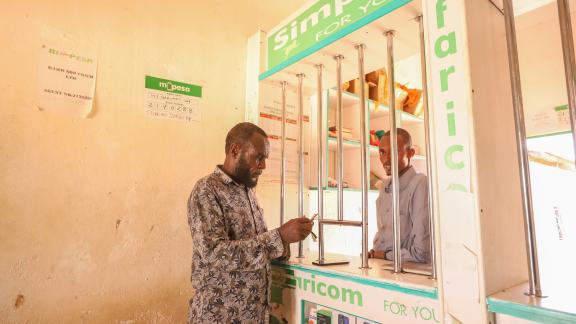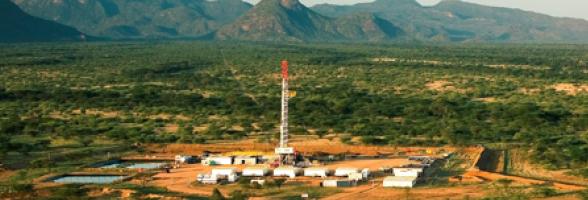Social protection is generally defined as a set of instruments that cushions individuals from socioeconomic vulnerabilities, risks, shocks, crises and unexpected disruptions throughout their lifecycle. The right to social security is recognised as a universal human right under the Universal Declaration of Human Rights and reinforced as a constitutional right under Article 43 (1) (e) of the Kenyan Constitution. In the current context, climate change poses one of the greatest risks to livelihoods, economies, ecosystems, biodiversity and the environment; and threatens to push communities into unprecedented levels of poverty, inequality and vulnerability, necessitating urgent action. Several studies have recognised the link between economic growth and climate change resulting in an increase in greenhouse gas (GHG) emissions, with the most developed countries contributing the most in terms of GHG. Over time, nations have developed their economies through carbon-intensive industrialisation, marked by various industrial revolutions, thereby contributing to the climate crisis. The Paris Agreement calls upon its signatories to keep global temperature to below 2 degree Celsius above pre-industrial times and work concertedly to reduce temperature increases even further to 1.5 C. In a best case scenario, if countries comply with current climate commitments, it is projected that the world will reach at least 2.7 degrees Celsius above pre-industrial times by 2100. It has become evident that the world must transition away from carbon-intensive industries powered by fossil fuels to low-carbon industries that embrace renewable energy sources that support at green industrialization. While this directive to transition away from fossil fuels sparked much debate during global climate platforms such as COP28, it appears to be an inevitable path that nations must traverse as they progress into the future, although at varied speeds, intensity and sequencing depending on their carbon emissions and capacity. The just energy transition could be the solution to fostering climate resilience and attaining net zero.
Though this transition is urgent, critical and prudent to mitigating climate change, the social impacts of the transition must be considered. Countries must carefully weigh and establish a delicate balance between growing their economies, protecting the environment, safeguarding communities from the destructive impacts of climate change, protecting communities from the transition (including job loss, loss of livelihoods, migration/relocation, and increased vulnerability from exploration of transition minerals) and recovery from loss and damage while avoiding increased public debt. The energy transition will have both negative and positive impacts such as disrupting labour market dynamics through job losses, creation of new jobs, demand for green skills; and creating a need for skills realignment in education and labour policies.
As per the UNDP Regional Human Development Report (2024), the shift to green jobs facilitated by technology creates a potential risk of job displacement, especially in manufacturing and mid-level white-collar positions within the services sector, where the impact is anticipated to be most significant. These compounded risks further threaten traditional sectors that support job creation and economic growth. Leveraging existing social protection instruments can mitigate the impact on employment. Governments must equip future generations with the skills necessary to remain competitive and begin to formulate policies that provide opportunities to harness green skills for green jobs amongst youth that make up an estimated 60% of the workforce in Africa and 67% of the unemployed population in Kenya and at-risk workers.

A project participant receives cash courtesy of the funding by the European Commission Humanitarian Aid Office (ECHO) for the drought-impacted households in Buna, Wajir County in 2023. Photo credit: Mark Wahwai. (File photo)
As the transition is a global priority, Governments must reflect on the interventions, structures, and policies that need to be established and implemented for the transition to incorporate the dimensions of equity, social justice and inclusion. Social protection provides untapped potential for governments to mitigate the risks and disruptions that the transition to a green economy presents.
Firstly, social protection can cushion communities from the negative impacts of climate disasters, which are becoming more frequent and severe. Climate-disaster insurance can help mitigate these shocks, particularly among vulnerable groups like women and children. Social protection measures can also assist individuals to cope with the direct effects of climate change such as food insecurity, displacement and resource-based conflict.
Secondly, ensuring an equitable transition requires a robust social protection system. Such a system can help alleviate poverty and social exclusion resulting from income or job loss. Various measures, including cash transfers, livelihood diversification, unemployment protection, and social security, can provide relief to affected communities. Social assistance and subsidies, whether in cash or in-kind, ensure income and access to basic needs for vulnerable individuals impacted by climate policies.
Moreover, social health insurance can provide coverage for health conditions associated with climate change or transition policies, ensuring access to healthcare without financial hardship. Pensions, including retirement and disability pensions, provide income security to older persons, persons with disabilities, and survivors—especially those displaced by the transition, such as workers in carbon-intensive industries who cannot re-enter the labour market. Disability or survivors' pensions may also provide support to people injured during climate-related events.
In addition, employment promotion measures enable individuals to access decent and productive employment. These include unemployment insurance, vocational training allowances, job placement centres, and anticipatory unemployment protection schemes. Employment promotion facilitates workers' transition to growing, more sustainable economic sectors. Skills development and employment services help defray the costs associated with vocational training and offer job placement support. Early retirement schemes offer financial support to workers nearing retirement age who face job loss, while voluntary redundancy programs assist workers with fewer years of service. These measures collectively aim to ensure a smooth and equitable transition for communities affected by climate change and transition policies.
To cushion communities and households from the disruptions of the energy transition, accountability from developed countries that have caused the climate crisis is paramount, by ensuring they uphold their climate financing commitments, which they haven’t been able to meet. Lastly, civil societies must continue to hold national and international governments accountable to their commitments. This is what will mark the global shift from a “Broken Record” to the “March of Progress” in climate discourse.

